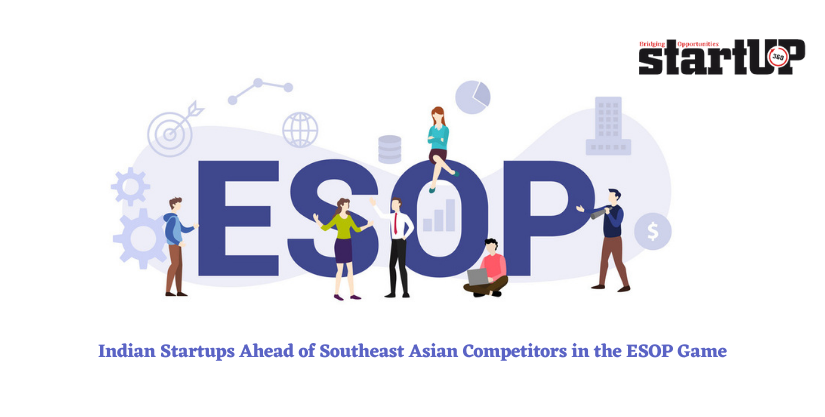Indian Startups Ahead of Southeast Asian Competitors in the ESOP Game
According to research, almost half of Indian entrepreneurs believe they understand employee stock option (Esops) programs better than their Southeast Asian counterparts.
When it comes to Esops, Indian companies beat their Southeast Asian colleagues, according to a report by Singapore-based venture capital firm Saison capital. Indian companies offer their employees more than a year to exercise stock options, whereas only 37 companies in Southeast Asia do so. Furthermore, just 6% of Indian firms, compared to 20% of Southeast Asian startups, dissolve all options when employees leave.
“India’s technological ecosystem has matured, ushering in a new era — one in which opportunities are produced at an unprecedented rate,” says the report. Cash salary alone is no longer sufficient to recruit and retain people in high-growth technical firms. “However, we commonly hear from startups who are having trouble putting together strong Esops,” Visa Kannan, a partner at Saison Capital, said.
Founders are more likely to employ Esops in order to retain and recruit people, as well as to establish a rewarding and ownership-oriented culture. Only a quarter of entrepreneurs (25%) think of Esops as a method to save money on salaries and other benefits. While Esops can reduce upfront compensation costs, they are far from a “cheap” alternative because they reduce stock pools for future fundraising, according to the paper.
Employees outside of the senior management team are offered Esops by the majority of Indian companies. According to the report, over one-third of companies provide stock options to all employees, regardless of seniority.
Saison’s report, on the other hand, has identified some areas where Indian companies can improve. One example is a shift in Esop pools, which are generally stagnant due to founders’ failure to maintain top-up and buyback schemes. Top-ups were mentioned by 59 percent of the entrepreneurs polled, while buybacks were mentioned by 51 percent.
While most founders are aware of Esop vesting timelines, most are unsure how to top up their stock options. Top-ups increase the number of unallocated shares available to recruit and retain new employees.
One out of every two founders, according to the survey, has no understanding of how to turn Esops into cash through buybacks. In India, however, we are seeing an uptick in buybacks from established businesses, which should serve as a model for fledgling startups.
Fintech Razorpay just announced a $75 million Esop buyback program for its 650 employees.

